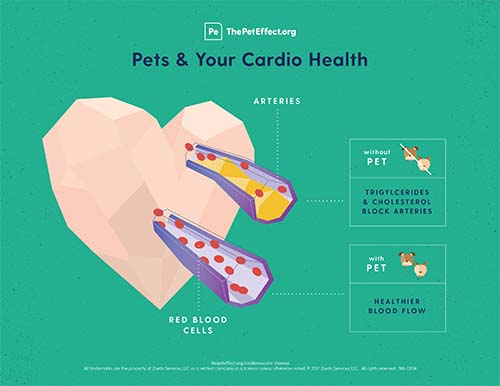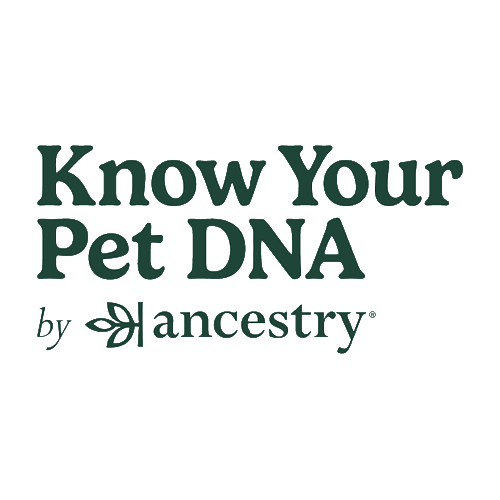New Market Research Shows Pets Make Us Feel Less Lonely
Washington, D.C. (May 7, 2019) — Mars Petcare and the Human Animal Bond Research Institute (HABRI) today gathered leaders in public health, research, psychology, gerontology, and veterinary medicine to advance scientific research, best practices, and practical solutions to facilitate the role of companion animals and human-animal interaction (HAI) in addressing the public health crisis of social isolation and loneliness in society.
Health experts have described loneliness as reaching epidemic levels – affecting people of all generations from all walks of life.[i] And most importantly, social isolation has been shown to be as deadly as smoking 15 cigarettes per day, making it a serious threat to public health.[ii] There is widespread agreement among both pet owners and non-owners that companion animals can play a role in addressing the societal challenge of loneliness and social isolation.[iii]
Results from nationally-representative market research reinforce the social bond between humans and pets. Specifically, 80 percent of pet owners say their pet makes them feel less lonely. When it comes to both pet owners and non-pet-owners, 85 percent of respondents believe interaction with a companion animal can help reduce loneliness and 76 percent agree human-animal interactions can help address social isolation. Further, pet owners with the closest bond to their pet see the highest positive impact on their feelings of loneliness and social isolation.[iv]
“Scientific research shows that pets have a positive impact on our health and wellbeing,” said Steven Feldman, HABRI Executive Director. “The insights from this research further highlight how the human-animal bond can play a role in helping to alleviate loneliness and social isolation.”
Using the insights uncovered in the research, Mars Petcare and HABRI have convened the first-ever Summit on Social Isolation, Loneliness and Companion Animals. The Summit brings together a broad cross-section of expertise to focus on the role of HAI in helping people at risk for social isolation, with a specific focus on HAI as an option for people facing mental health challenges and HAI as a resource for older adults.
Speakers at the Summit included the Nineteenth U.S. Surgeon General, Dr. Vivek Murthy, who continues to champion the importance of finding ways to address loneliness and social isolation.
Dr. Murthy shared, “For our health and our work, it is imperative we address the loneliness epidemic quickly and on many evidence-based fronts. I hope this Summit and its working groups will inspire more and different efforts to address loneliness and social isolation through pet interactions and ultimately help make a profound difference for the millions affected.”
To maximize these benefits, many people feel society needs to encourage acceptance and expand access for pets. The HABRI-Mars Petcare survey shows people believe government – both state (41 percent) and federal (38 percent) – have a degree of responsibility to foster human-animal interaction. Many experts feel this represents an opportunity for new, innovative partnerships that harness the power of pets to improve society.
“We know pets improve our lives in many ways – including providing companionship and bringing people together,” said Dr. Nancy Gee, PhD, Human-Animal Interaction Research Manager, WALTHAM Centre for Pet Nutrition. “It’s our hope that one day evidence-based methods can become common practice in schools, hospitals and other therapy settings. Driven by science, we hope to enable and encourage experts who work with people facing loneliness and social isolation to consider facilitating animal interaction as a way to help address the issue.”
To learn more about the Summit and the research into the benefits of pets on loneliness, please visit www.waltham.com and www.habri.org. To learn more about the benefits of pets and how you can take action in your community so that more people and pets can live healthy lives together, visit www.BetterCitiesforPets.com.
References
iii.
HABRI and Mars Petcare Loneliness and Social Isolation Study. Conducted by Edelman Intelligence. December 2018.
iv.
HABRI and Mars Petcare Loneliness and Social Isolation Study. Conducted by Edelman Intelligence. December 2018.
About the Market Research
The market research, conducted by Edelman Intelligence on behalf of HABRI and Mars Petcare, was a nationally representative 30-minute online questionnaire conducted in the US to explore the role pets and human-animal interaction can play in addressing social isolation and loneliness. The market research was conducted among 2,036 respondents, including 1,469 pet owners (72 percent). The UCLA Loneliness Index and The Monash Dog Owner Relationship Scale (MDORS) were used within the analysis to explore key themes. Data was tested at a 95 percent confidence interval.
About HABRI
HABRI is a not-for-profit organization that maintains the world’s largest online library of human-animal bond research and information; funds innovative research projects to scientifically document the health benefits of companion animals; and informs the public about human-animal bond research and the beneficial role of companion animals in society. For more information, please visit www.habri.org.
About Mars Petcare
Part of Mars, Incorporated, a family-owned business with more than a century of history making diverse products and offering services for people and the pets people love, the 85,000 Associates in Mars Petcare are dedicated to one purpose: A BETTER WORLD FOR PETS. With 75 years of experience, our portfolio of almost 50 brands serves the health and nutrition needs of the world’s pets – including brands PEDIGREE®, WHISKAS®, ROYAL CANIN®, NUTRO™, GREENIES™, SHEBA®, CESAR®, IAMS™ and EUKANUBA™ as well as The WALTHAM Centre for Pet Nutrition which has advanced research in the nutrition and health of pets for over 50 years. Mars Petcare is also a leading veterinary health provider through a network of over 2,000 pet hospitals including BANFIELD™, BLUEPEARL™, PET PARTNERS™, VCA™, Linnaeus and AniCura. We’re also active in innovation and technology for pets, with WISDOM PANEL™ genetic health screening and DNA testing for dogs, the WHISTLE™ GPS dog tracker, and LEAP VENTURE STUDIO accelerator and COMPANION FUND™ programs that drive innovation and disruption in the pet care industry. As a family business and guided by our principles, we are privileged with the flexibility to fight for what we believe in – and we choose to fight for: A BETTER WORLD FOR PETS.
Contact
Angela Hughes, DVM PhD
angela.hughes@effem.com
###





